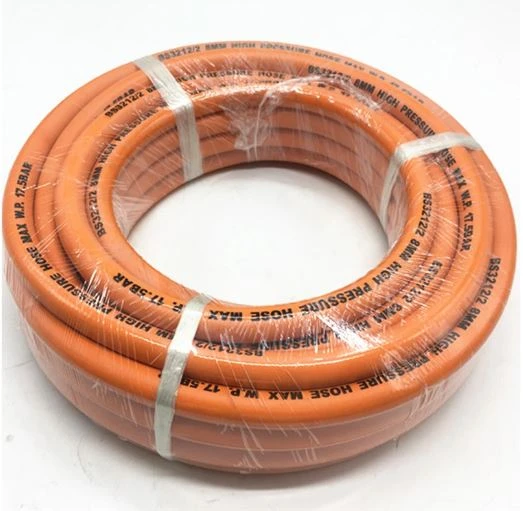PVC Hose Manufacturing Facility for High-Quality Industrial Solutions and Custom Designs
The PVC Hose Factory A Comprehensive Overview
In the modern industrial landscape, the importance of versatile and durable materials cannot be overstated. Among these materials, PVC (Polyvinyl Chloride) has emerged as a favorite due to its remarkable properties and wide range of applications. A PVC hose factory plays a crucial role in manufacturing these essential products that serve multiple industries, including construction, agriculture, automotive, and more. This article delves into the workings, benefits, and innovations of a PVC hose factory.
Understanding PVC and its Advantages
PVC, a type of plastic, is known for its durability, chemical resistance, and flexibility. These attributes make it an ideal material for hose production. PVC hoses are lightweight and can effortlessly handle various fluids, including water, chemicals, and gases, making them highly versatile. Additionally, they boast good weather and UV resistance, which ensures they can withstand outdoor environments without deteriorating.
One of the standout features of PVC hoses is their affordability. Compared to hoses made from rubber or metal, PVC hoses are typically less expensive to produce, making them an economical choice for consumers and manufacturers alike.
The Manufacturing Process
The manufacturing of PVC hoses typically involves several stages, each requiring precision and expertise. The core steps include
1. Material Preparation The process begins with the procurement of raw PVC resin, which may be mixed with other additives to enhance properties such as flexibility, color, and UV resistance.
2. Extrusion The prepared PVC material is fed into an extruder machine, where it is heated and forced through a die to create the hose's shape. This process allows for the continuous production of hoses in various diameters and lengths.
3. Reinforcement For added strength, especially in high-pressure applications, hoses may be reinforced with textile fibers or steel wire. This process ensures that the hoses can withstand significant pressure and are less likely to rupture.
4. Cooling and Setting Once extruded, the hoses are quickly cooled in a water tank to set their shape and dimension.
5. Cutting and Finishing After cooling, the hoses are cut to the required lengths and may undergo finishing processes such as cleaning, testing, and labeling.
pvc hose factory

6. Quality Control Finally, rigorous quality control measures are implemented to ensure that all products meet industry standards. Hoses are tested for flexibility, pressure strength, and chemical resistance before they are packaged for shipping.
Innovations in PVC Hose Production
The PVC hose manufacturing industry has witnessed numerous innovations over the years. Advanced technologies such as computer-aided design (CAD) and automated production lines have streamlined the manufacturing process, enhancing efficiency and reducing production costs. Moreover, the development of eco-friendly PVC formulations has begun to take center stage. With growing environmental concerns, manufacturers are investing in biodegradable and recyclable PVC materials to meet market demands for sustainability.
Additionally, customization is a significant trend in the industry. Many PVC hose factories now offer bespoke solutions tailored to the specific needs of their clients, providing hoses with unique properties such as varying diameters, lengths, colors, and resistance to specific chemicals or temperatures.
Applications of PVC Hoses
The applications of PVC hoses are vast and varied. They are widely used in
- Agriculture PVC hoses are instrumental in irrigation systems, allowing for effective water distribution in fields.
- Construction In construction sites, PVC hoses are utilized for transporting water, cement, and other materials.
- Automotive They are also used in vehicles for coolant and fuel lines due to their resistance to various chemicals.
- Home and Garden Many households utilize PVC hoses for gardening and landscaping, taking advantage of their flexibility and durability.
Conclusion
A PVC hose factory is a pivotal player in the global manufacturing landscape, producing essential products that contribute to various sectors. With ongoing innovations and a focus on sustainability, the future of PVC hoses appears promising. As industries evolve and the demand for durable, cost-effective, and environmentally friendly materials rises, PVC hoses will undoubtedly maintain their position as a staple in everyday applications, ensuring that they continue to meet both current and future needs.
-
Top Quality Oxy Acetylene Hoses for Sale Fit for Welding DemandsNewsJul.28,2025
-
The Future of Pneumatic Air Tubes in IndustryNewsJul.28,2025
-
Superior and Reliable LPG Hose Pipe Solutions for Every NeedNewsJul.28,2025
-
Exceptionally Durable and Versatile Premium Braided PVC TubingNewsJul.28,2025
-
Best Adapters for Connecting Garden Hose to PVC Pipe ConnectionsNewsJul.28,2025
-
The Essential Role of LPG Hoses in Safe and Efficient Gas DistributionNewsJul.16,2025














